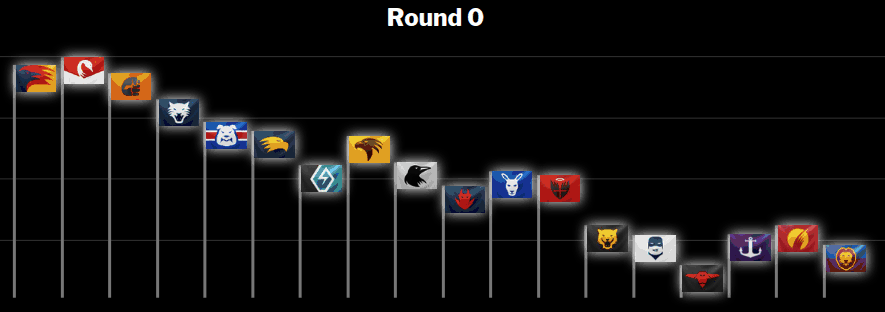Freo fans were dissing the squiggle for the same reason when they were good.
I'm not actually dismissing the squiggle, in fact, I've defended the squiggle in the past against doubters. Final siren and roby insisted that sides like Hawthorn would beat sides like Fremantle, and I bought it. Turned out they were right (admittedly roby's prediction skills can get spotty at times).
The reason why Fremantle fans didn't believe is that they really hoped their gameplan would stack up despite all evidence. My criticism with final siren isn't with his model, it's with his usage of the term "gameplan" as I said before, it's not completely true that a side which scores less scores less because of a defensive mindset. Final siren acknowledged this in his response in saying that what unites Fremantle and Richmond is a lack of scoring, which means they have to attack perfectly to win, which they don't anyway. That is true but that's not a facet of gameplan.
As I remarked earlier, I completely accept Richmond's attacking woes will hurt them, it's why I agree with the squiggle that Richmond has a chance against the giants but can't beat the crows, a fear I've voiced in this thread before.
But but but we ease up when we are in front which is why we don't score as much'
I don't think I've ever said that, in fact I'd say the reason why Richmond doesn't win games by much is because it doesn't score much because it doesn't have a great forwardline. Pressure aside Richmond would score more with a decent second tall.
Squiggle will prove itself right when it matters to you most.
I've already bought into the squiggle.





